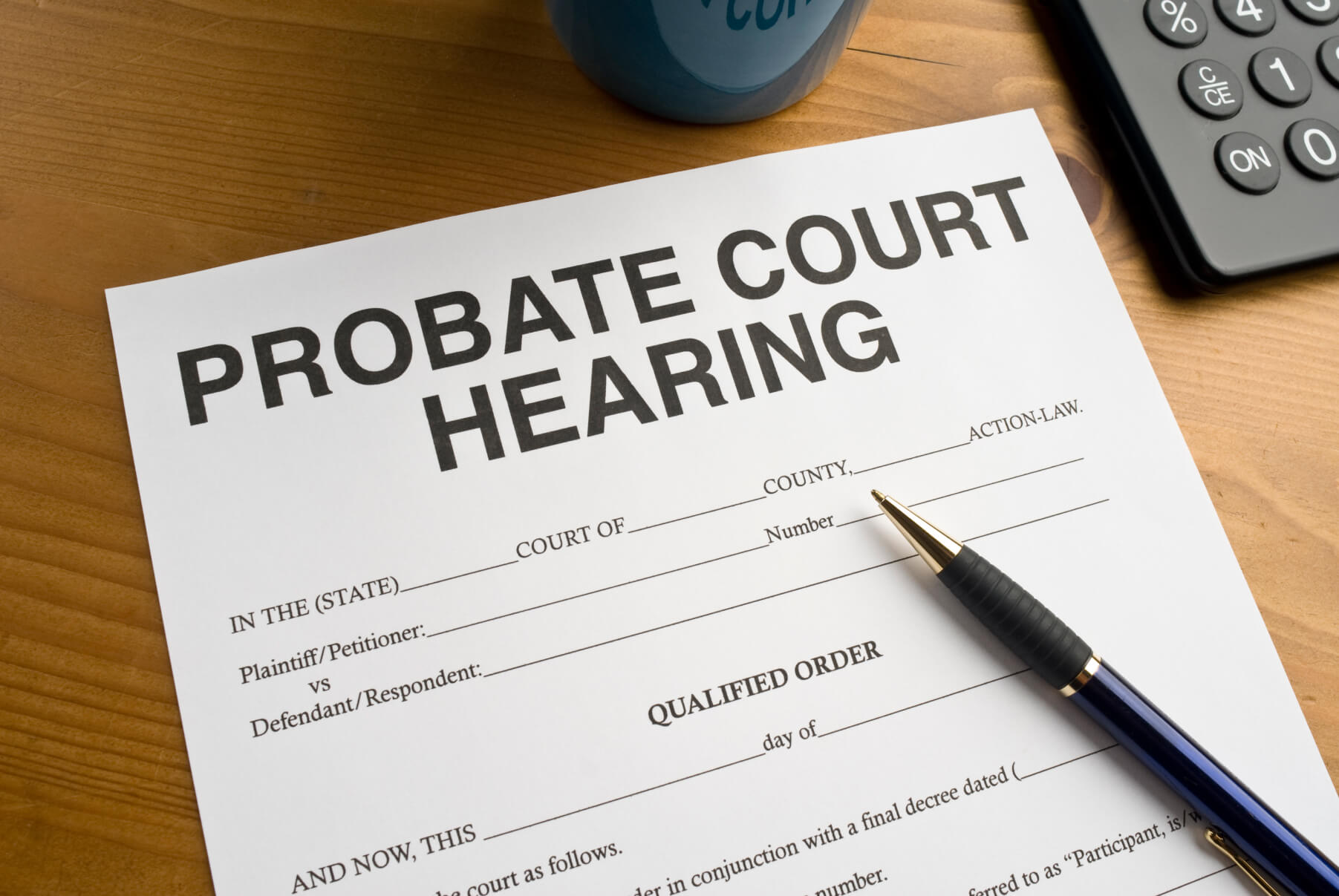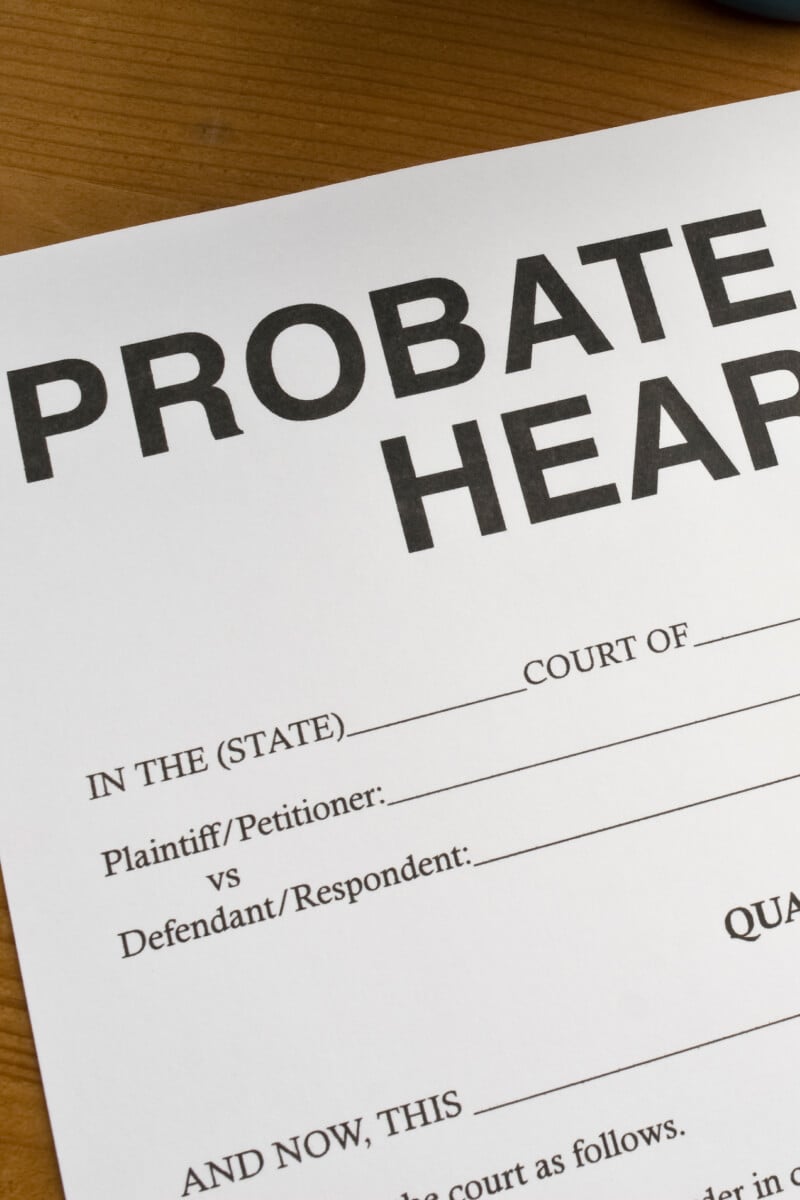California
Probate10,000 +
Trusts & Wills Prepared
1,000 +
Probates & Trust Administrations
Free Consultations


After the death of a beloved family member, many people find that just a few days beyond that funeral or celebration of life, Probate awaits. If you’re not sure what Probate is, it’s the court process of proving that the Will of the person who passed away is valid, so the Estate can distribute inheritances to family and friends.
If the decedent prepared for their death with an Living Trust or Will-based Estate Plan, they’ve most likely appointed a friend or family member to handle the many tasks of managing and distributing property. If there’s no existing Will, the court will choose someone to act as the Estate’s executor or administrator.
Here are the substantial tasks an Estate Trustee must complete:
- Locating and protecting assets
- Determining the value of assets via appraisals and receipts
- Locating and identifying creditors
- Paying the Estate’s bills
- Filing the decedent’s income tax returns
- Representing the Estate during court hearings
- Distributing assets to heirs and rightful beneficiaries
As you can imagine, this is a monumental process, and even the most responsible person can take a great deal of time checking every box. Your help in gathering bank records, bills and other documents for the Estate Trustee might be a godsend, but Probate can still take months or years before beneficiaries see an inheritance.
At Vaksman Khalfin, we know the Probate process inside and out. We can save you time and money, streamlining Probate so assets are distributed as soon as possible.
Our team can also help you avoid Probate altogether, via Estate Planning. Contact us for more info.
What is Probate?
When it comes to Estate Planning, there may be many unfamiliar terms that keep you from properly protecting your estate and preparing for your future. With that in mind, Probate may be one of those unfamiliar terms, which is indeed important to understand.
Probate technically means “the official proving on a Will.” For practical purposes, Probate is the legal process of establishing whether a valid Will exists for the estate, inventorying the deceased’s assets and property, having the assets and property appraised, paying any applicable debts and taxes, and distributing any remaining assets and property to the heirs. The process can be in accordance with a person’s Will or by established law in the absence of a valid Will. In short, Probate is the court process where the assets of a deceased person are distributed.
Some people fear that Probate can be a long or costly process. And they are correct in their concerns. Probate is lengthy, costly, and, in most situations, avoidable.

How do you avoid Probate for financial accounts?
We typically suggest thinking about financial holdings in three categories:
(1) cash accounts (checking and savings)
(2) taxable brokerage accounts; and
(3) retirement accounts (401k, IRA, etc)
Although some situations may vary, and you should always consult your attorney first, for most Probate avoidance purposes, we generally suggest that our clients take the following approach:
IRA and 401k: designate your spouse as primary beneficiary (as an individual), and your children as contingent beneficiaries (as individuals). There is no need to involve the trust here.
Checking account: Change ownership to the trust; the bank will provide you with a form to do this (once your trust is signed). Alternatively, if you prefer, you can instead designate beneficiaries on this account.
Taxable brokerage accounts: Change ownership to the trust; the brokerage will provide you with a form to do this (once your trust is signed). Alternatively, if you prefer, you can instead designate beneficiaries on this account.
With the above being said, keep in mind that changing ownership to the trust or designating individual beneficiaries both avoid Probate, so it’s ultimately a matter of consulting your attorney as to which method to use for every financial account/product.
For joint accounts, you generally do not need to put your spouse as beneficiary, as the surviving joint owner will automatically get the account. For joint accounts, you generally only need to list your children as beneficiaries (or retitle in the name of the trust). Please note that if ownership is held by the trust, this would override any beneficiary designations you make on the account.
For any accounts where you have designated beneficiaries, after both you and your spouse pass, the beneficiaries would present a Death Certificate to the financial institution and fill out a form to be provided by the financial institution. The funds would then be transferred to the beneficiaries (outside of Probate).
Finally, we suggest that you provide your beneficiaries and trustees with a list of all accounts / assets so that they have all the necessary information available to them, when needed. We recently started offering a “Digital Locker” as part of our services, in order to allow clients to securely store all of their asset information online.
Probate FAQ
You should designate successor owner(s) for your 529, in order to avoid probate. While it’s possible in most 529 plans to name a trust as successor owner, this would be atypical as most clients instead name individuals as successor owners.
Whether an estate has to go through the Probate process is largely determined by the type of property owned, how it is owned, and local state law. For instance, California has adopted “simplified procedures” where the estate is not put through Probate for estates valued under $20,000 to $100,000 depending on the circumstances and type of property owned. Additionally, unless property is specifically arranged to avoid Probate, Probate is the only way for heirs to get full legal ownership.
Probably not without expert Estate Planning advise. One of the most popular ways to avoid Probate is with the use of a revocable living trust. Assets are placed into a living trust but are still accessible to the trust creator. Additionally, the trust creator can revoke or amend the living trust throughout their lifetime. Proper Estate Planning will help you best achieve your goals. By talking with a trained Estate Planning professional you can discuss your goals and make choices that will effectively and efficiently plan for your estate’s Probate.
Usually, Probate involves paperwork being filed in the court and attorneys making court appearances. Any applicable courts fees and attorney’s costs are paid, if possible, by the estate. The first step is a Probate case is filed in the proper court of jurisdiction. The proper court is determined by state law. In California, Probate cases are filed with the Probate Department of the Superior Court in the decedent’s county of residence at the time of their death. The process is dictated by state law but generally a case is opened, an executor or administrator is assigned as the personal representative of the estate, any objections, if any, to the Will are heard, and the court makes any decisions necessary to get the Probate closed.
This depends on many factors including the complexities of the estate, the state the estate in located in, and whether the will is contested. A local attorney specializing in Probate will be in the best position to advise you on what type of Probate process would be expected for your estate.
No, but you probably should. While there is no legal requirement to hire a lawyer if you are named the executer or administrator of an estate, it would still be a prudent decision. A lawyer will help ensure you file everything timely and help you avoid making any mistakes. Hiring an attorney upfront to navigate the legal system for you, is much cheaper than hiring a lawyer to clean up a mess after it has already been made.
SUBMIT YOUR CONTACT DETAILS 100% Free Consultation, Always. Free Consultation.
